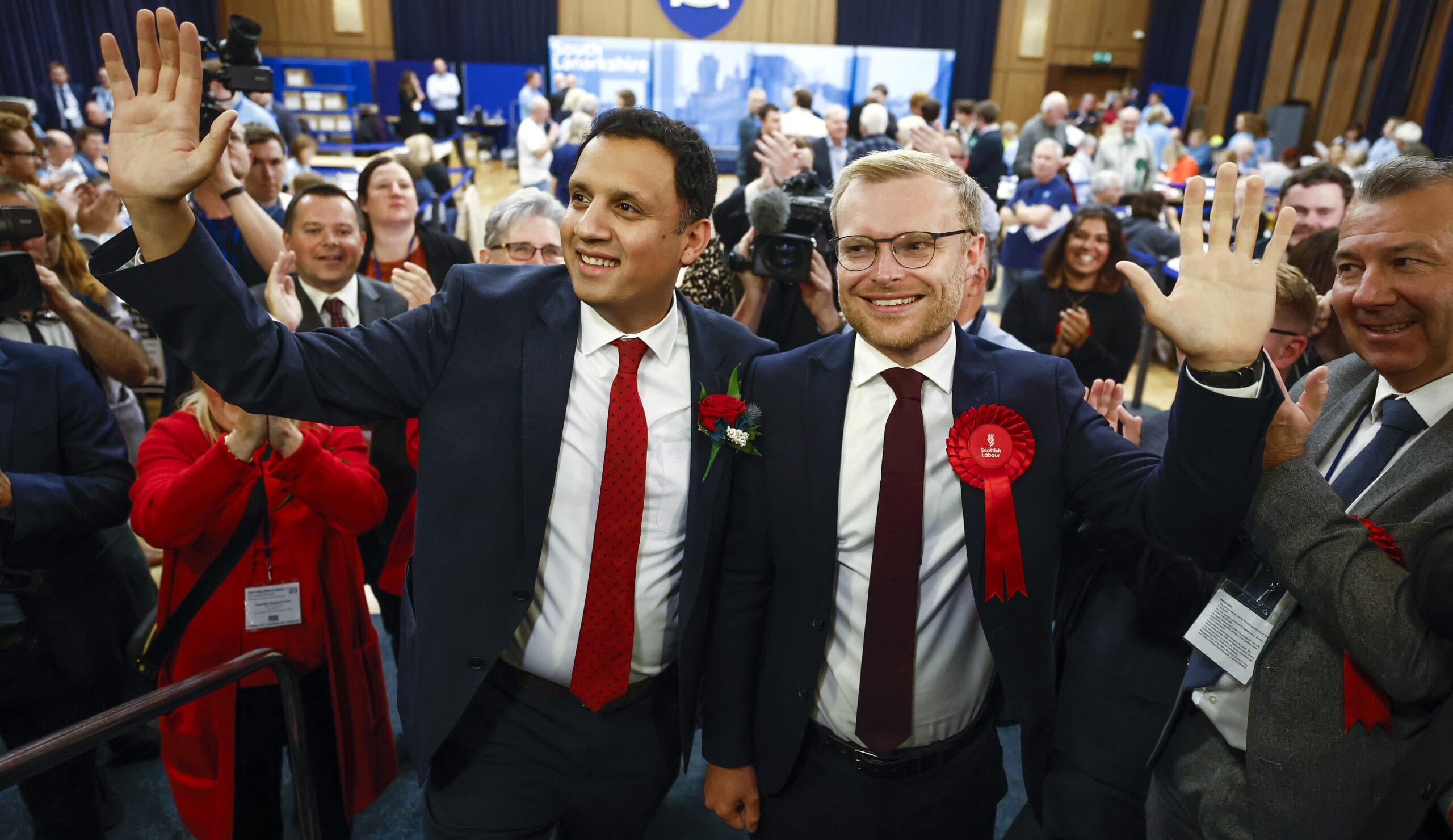Scotland’s Yellow Wall has cracked. In the 2019 general election, almost the entire length of Scotland’s central belt around Glasgow and Edinburgh went SNP. Last night, in the Lanarkshire seat of Rutherglen and Hamilton West, a small chunk of Red Clyde-side was restored to its former owner. On a low turn-out, Labour took 58.6% of the vote, registering a 20% swing from the Nationalists. It was a thumping.
It marks quite the comeback for Scottish Labour. Four years ago, the party recorded its lowest share of the vote in Scotland since 1910, and looked more or less ready for the undertakers. True, the circumstances around last night’s victory were undeniably favourable: the SNP has done just about everything locally and nationally in the last eight months to annoy its voters. But you make your own luck in politics and, under energetic Scottish Labour leader Anas Sarwar, this stunning victory shows that the Scottish party has its mojo back.
For the SNP, the defeat will only add to the growing sense this is a party with a puncture. Nicola Sturgeon’s sudden resignation, the subsequent police investigation, and the deep divisions that have been exposed since have left its supporters in a deep funk: its numbers in Rutherglen crashed from 23,775 four years ago to just 8,399 yesterday. Under Sturgeon’s underwhelming replacement Humza Yousaf, it now looks just like any other party that’s been in power for too long: out of touch and out of time.
What comes around goes around. In the 2000s and 2010s, a tired and divided Labour party was eclipsed by a hungry and united SNP. Rutherglen has now seen the precise opposite take place.
There will now be excited talk at Labour Conference in Liverpool about the impact of this “seismic” victory, to use Sarwar’s words from last night. For if Scottish Labour replicated its Rutherglen success across the central belt next year, it would wipe the SNP from the map, winning more than 40 of Scotland’s 59 seats, ushering Sir Keir Starmer into No. 10. However, Sarwar and his colleagues know that the job is nowhere near complete.
Rather, as veteran pollster Peter Kellner pointed out at a Tony Blair Institute fringe event last weekend, Scotland remains on an electoral knife-edge. Despite everything, the Nationalists still have a healthy lead over Labour in the national polls. Yousaf is sitting in the mid-to-high 30s, ahead of Labour in the high 20s. But the SNP is vulnerable, Kellner notes, because its vote is evenly distributed across Scotland, while Labour’s support is more concentrated in the central belt.
Thus, it will only take a small tightening in those national poll numbers for more seats like Rutherglen to tip over next year. Labour is also helped by the evidence that, in these Labour-SNP marginals, Unionist Tory and Lib Dem voters are more than happy to vote tactically for whoever can beat the SNP — as they did yesterday.
The Tories and Lib Dems will hope to mop up those Unionist voters in their areas of strength elsewhere in Scotland. But last night’s result shows that the real action will take place in the Yellow Wall, where a battle royale between the SNP and Labour is now set to take place.
Youasf will seek to motivate hardcore independence supporters with ever wilder promises on separation while also seeking to win back moderate Scots who just liked that Nicola. For Labour, the challenge will be to turn the “grumpy Nats” who yesterday stayed home into actual Labour voters. They won’t “come home to Labour” — they left far too long ago for that. Instead, Sarwar and Starmer will need to make a positive argument about Scotland and the UK to convince them that, at this election, it is time to give them a chance.
In short, Round One to Labour. But across the rest of Scotland, the bigger battle is still too close to call.











Join the discussion
Join like minded readers that support our journalism by becoming a paid subscriber
To join the discussion in the comments, become a paid subscriber.
Join like minded readers that support our journalism, read unlimited articles and enjoy other subscriber-only benefits.
Subscribe